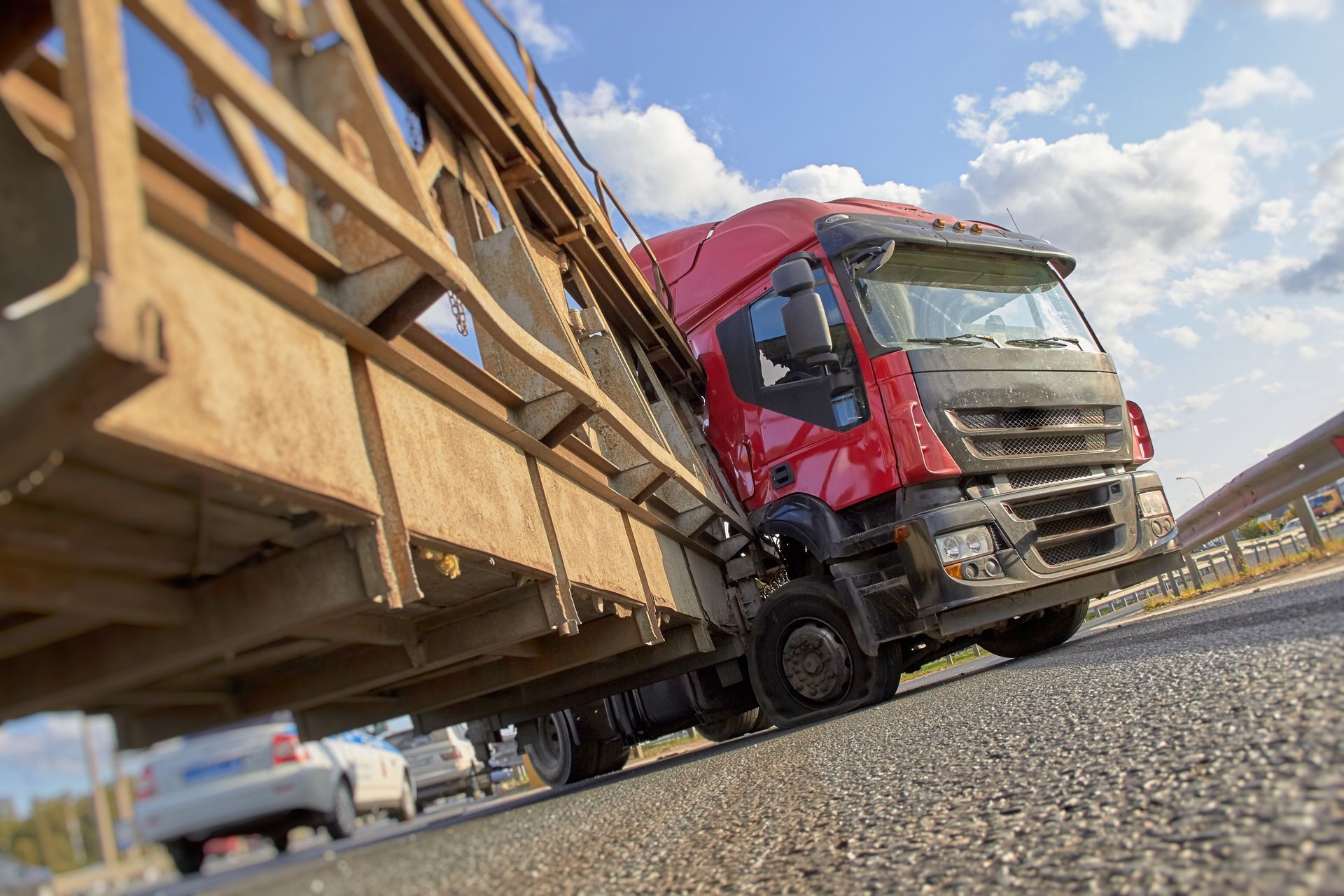The Complexities of Truck Accidents and Safe Driving in Inclement Conditions

Weather plays a pivotal role in road safety, especially for commercial trucks as they are more prone to accidents.
From torrential rain to icy roads, adverse weather conditions pose significant legal challenges for truck drivers, impacting accident rates and liability.
Understanding the Impact of Weather Conditions on Truck Accident Liability
Reduced Visibility
Fog, heavy rain, snow or dust storms drastically diminish visibility, obscuring road signs, obstacles and other vehicles. Such limited visibility elevates the risk of collisions. Truck drivers who fail to adapt their driving behavior to accommodate reduced visibility may be deemed negligent, significantly affecting liability in accidents.
Slippery Road Surfaces
Wet or icy road surfaces pose significant challenges, reducing traction and increasing the likelihood of skidding or jackknifing. Accidents resulting from slippery road conditions often prompt questions about driver negligence. Failure to reduce speed or maintain a safe distance in such conditions may intensify liability concerns.
Decreased Braking Ability
Adverse weather conditions compromise a truck's braking ability, leading to longer stopping distances. Drivers must adjust their driving to accommodate increased braking distances, particularly at intersections and in heavy traffic. Failure to do so can result in rear-end collisions, with potential implications for liability.
Wind Gusts
Strong crosswinds, particularly on open highways or exposed bridges, can destabilize trucks, making steering challenging. Gusts may cause trucks to sway unexpectedly, increasing the risk of accidents. Drivers must exercise caution and maintain control of their vehicles to mitigate liability in windy conditions.
Hail and Debris
Hailstorms and debris from severe weather events pose additional hazards, including reduced visibility and damage to vehicles. Truck drivers must navigate such conditions with vigilance, minimizing the risk of accidents and liability.
Essential Tips for Safe Driving in Adverse Weather Conditions
Safe driving practices are paramount for truck drivers when facing adverse weather conditions.
These are some crucial strategies to enhance safety and mitigate the risk of accidents:
- Adjust Speed: Reduce speed to match road conditions, particularly in rain, snow or fog, to maintain control of the vehicle and reduce the risk of hydroplaning or skidding.
- Increase Following Distance:
Maintain a safe distance from other vehicles to allow for extended braking distances and prevent rear-end collisions, especially in inclement weather.
- Exercise Caution on Turns: Approach turns and curves with caution, reducing speed to avoid loss of control or rollover accidents, particularly on slippery roads.
- Ensure Visibility: Keep headlights on low beam and utilize fog lights or hazard lights when necessary to improve visibility for yourself and other drivers, reducing the risk of accidents.
- Monitor Weather Conditions:
Stay informed about weather forecasts and road conditions along your route, adjusting travel plans if severe weather is anticipated to enhance safety.
- Perform Regular Vehicle Maintenance: Ensure tires, brakes and windshield wipers are in optimal condition to enhance vehicle performance and safety in adverse weather conditions.
Mitigating Liability: Legal Considerations for Truck Drivers
In the event of an accident, truck drivers must be aware of legal considerations that may impact liability.
Here are key legal factors to consider:
- Compliance with Regulations: Truck drivers must adhere to federal and state regulations governing safe driving practices, particularly in adverse weather conditions. Failure to comply with regulations may increase liability in the event of an accident.
- Documentation and Reporting: Truck drivers should maintain accurate records of driving hours, vehicle inspections and any adverse weather conditions encountered during the journey. Prompt reporting of accidents and cooperation with authorities is essential to mitigate liability.
- Legal Representation: In the event of a lawsuit or insurance claim, truck drivers should seek legal representation from experienced attorneys who understand truck accident cases inside and out. Legal counsel can provide guidance, protect drivers' rights and navigate complex liability issues.
Find a Top-Notch, Atlanta Truck Crash Lawyer Today
Adverse weather conditions present formidable challenges for truck drivers, significantly impacting accident rates and liability considerations. By understanding the nuanced influence of weather conditions on truck accidents and implementing indispensable safety measures, drivers can navigate adverse weather conditions more effectively, reducing the likelihood of accidents and safeguarding themselves from liability concerns.
If you’re ready to get in touch with a truck crash personal injury attorney in the city of Atlanta, browse ATL Elite and call an attorney listed here on our website today.


